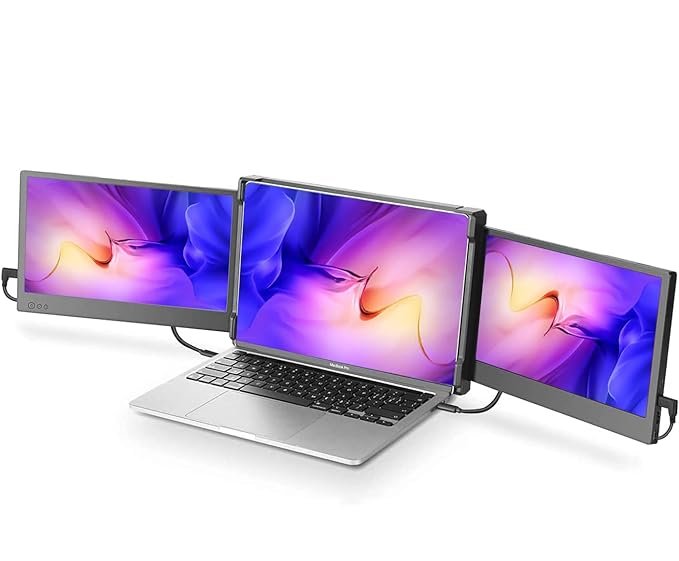We’ve all been there. You’re hunched over your laptop, battling a spreadsheet that seems to stretch on forever, or desperately trying to juggle multiple documents at once. Your eyes are watering, your neck aches, and you can’t help but think, “There has to be a better way!”
Well, fret no more! The magic solution you seek might be a little device called a laptop screen extender.
But what exactly is a laptop screen extender?
Think of it as a superhero for your workday (or Netflix binge, no judgment here). It’s a secondary monitor that can be attached to your laptop, giving you much-needed extra screen real estate. Imagine having that overflowing spreadsheet on one screen while keeping your email open on the other, or referencing a research paper while writing an essay. The possibilities are endless!
There are two main types of extenders to consider:
- Portable Monitors: These are essentially miniaturized monitors, often powered by a USB cable or built-in battery. They’re perfect for creating a dual-screen setup on the go, whether you’re working from a coffee shop or jetting off on a business trip. Some portable monitors even attach magnetically to the back of your laptop for a seamless, lightweight experience.
- Docking Stations: These are more robust solutions, ideal for creating a permanent dual-monitor setup at your desk. They typically connect to your laptop via a USB-C cable and often provide additional ports for peripherals like keyboards, mice, and external hard drives.
Here are some of the benefits of using a laptop screen extender:
- Increased Productivity: Multitasking becomes a breeze, allowing you to see more information at once and switch between tasks quickly.
- Improved Comfort: No more neck strain from constantly switching your gaze between tiny windows. Extend your screen and work in a more ergonomic position.
- Enhanced Entertainment: Take your movie marathons or gaming sessions to the next level with a wider viewing experience.
Let’s talk about some real-life examples:
- The Content Creator: Imagine a graphic designer with their editing software open on one screen while referencing stock photos or client notes on the other.
- The Remote Worker: For video conferencing, having your meeting window on one screen allows you to keep an eye on emails, chat messages, or project notes on the other.
- The Student: Researching for a paper? Open multiple browser tabs side-by-side to compare sources and take notes efficiently.
So, is a laptop screen extender right for you?
If you find yourself constantly feeling cramped on your laptop screen, or if multitasking is a daily struggle, then the answer is a resounding yes! Consider your needs and budget when choosing between a portable monitor or a docking station. With a little research, you can find the perfect screen extender to unlock a whole new level of productivity and comfort.
Bonus Tip: Many laptops allow you to use a secondary monitor without purchasing additional hardware. By adjusting your display settings, you can extend your desktop to a compatible TV or monitor using an HDMI cable.
Happy extending!




Leave a Reply